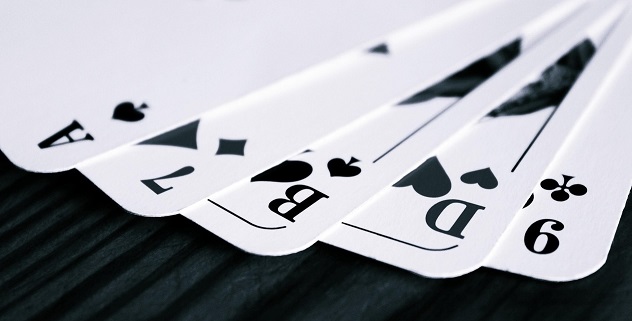
Mau-Mau is one of Germany’s most beloved and accessible card games, often passed down through generations. Simple to learn but endlessly replayable, it is a favorite at family gatherings, schoolyards, and casual pub nights.
Its influence is so significant that Mau-Mau even inspired international hits like UNO. If you are looking for a fast-paced, fun, and easy-to-learn game with deep cultural roots, Mau-Mau is a perfect choice.
History and Origins of Mau-Mau
Mau-Mau’s exact origin is uncertain, but it likely developed in Germany or Austria in the early 20th century.
It shares roots with older shedding-type games from Europe and became especially popular after World War II due to its simplicity and minimal equipment needs.
Over time, Mau-Mau became a staple in German-speaking countries, with countless house rules and regional tweaks enriching the basic gameplay.
Equipment
Deck
- A standard 32-card German or French deck (using cards from 7 to Ace).
- Some variations use a full 52-card deck or even two combined decks for large groups.
Card Ranks and Suits
Standard suits:
- Clubs (♣), Spades (♠), Hearts (♥), Diamonds (♦)
Ranks from lowest to highest:
- 7, 8, 9, 10, Jack, Queen, King, Ace
In Mau-Mau, there is no inherent card strength except for special effect cards.
Game Objective
The objective is simple:
- Be the first player to get rid of all your cards.
- Play matching cards (by number or suit) onto a discard pile faster than your opponents.
If you cannot play, you must draw cards — often leading to dramatic comebacks and reversals.
Seating and Deal
- 2–6 players is ideal, though more can play with multiple decks.
- Dealer shuffles and deals 5 cards to each player (sometimes 6 or 7 by house rules).
- Remaining cards form a draw pile; one card is placed face-up to start the discard pile.
Mau-Mau Gameplay and Rules
Basic Play
- The player to the dealer’s left plays first.
- On your turn, you must play a card that matches the suit or rank of the top discard.
- If you cannot play, you must draw one card (or more, depending on house rules).
Special Cards
Certain cards trigger effects:
| Card | Effect |
|---|---|
| 7 | Next player draws two cards (can stack). |
| 8 | Next player skips a turn. |
| Jack | Player chooses the suit. |
| Ace | Player can sometimes reverse play (optional rule). |
House rules may add additional effects for other cards.
Winning
- The first player to discard all cards wins the round.
- In longer games, points can be awarded based on remaining cards in opponents’ hands.
Common Mistakes
- Forgetting to say “Mau!” when you have only one card left (house rule in many regions).
- Missing an opportunity to play a special card strategically.
Bidding and Declarations
Unlike Skat or Schafkopf, Mau-Mau has no formal bidding phase.
However, certain house rules add declarations, such as:
- “Mau!” when you are down to your last card.
- “Mau-Mau!” when you play your final card to win.
Failure to announce can result in penalties (e.g., drawing additional cards).
Scoring System
In casual play, each round is self-contained: the winner is simply the first to empty their hand.
For point-based games:
- Players receive penalty points equal to the values of cards left in their hand.
- Jacks, Queens, and Kings may be worth 10 points; Aces 11 points; others face value.
Lowest cumulative score after several rounds wins the match.
Mau-Mau Variations
Mau-Mau is famous for its flexible house rules. Popular variations include:
- Stacking 7s: If a 7 is played, the next player can add another 7, causing the next to draw 4, and so on.
- Custom Action Cards: Some groups assign effects to cards like the 9 (reverse direction) or 10 (wild card).
- Multiple decks: For games with more than six players.
Regional versions sometimes rename the game (e.g., “Neun Neun” or “Watten Mau”).
Mau-Mau Strategy Guide
Beginner Tips
- Hold onto action cards like 7s and Jacks for emergencies.
- Play high-numbered cards early to avoid being stuck with them.
Intermediate Tactics
- Time your 7s and 8s to disrupt opponents’ momentum.
- Use Jacks tactically to change suits at critical moments.
Expert-Level Strategies
- Bluffing: Act as though you cannot play even if you can, to lure opponents into mistakes.
- Suit tracking: Remember what suits opponents seem to lack based on their draws.
Where to Play Mau-Mau Today
- Online Platforms:
- Mau-Mau Palast
- Mau Mau King
- CardGames.io Mau-Mau
- Casual Settings:
Mau-Mau is a staple at family game nights, youth camps, school breaks, and informal pub gatherings. - Explore even more traditional games: popular German card games.
Related German Card Games
If you enjoy Mau-Mau, you might also love:
- Skat: A deeper, trick-taking challenge.
- Doppelkopf: Strategic partnership play.
- Schafkopf: Bavarian trick-taking tradition.
- Watten: Bluffing and signaling in southern Bavaria and Austria.
- Binokel: A classic Swabian game similar to Pinochle.
- Schwimmen (31): A fast-paced game of risk and reward.
FAQs
Is Mau-Mau easy to learn?
Yes! Basic rules can be learned in minutes, making it ideal for players of all ages.
Can Mau-Mau be played with a full deck?
Yes. Especially for larger groups, a 52-card deck or two decks is common.
What happens if two players finish at once?
House rules vary, but usually the player who discarded first wins.
Is Mau-Mau the same as UNO?
UNO was directly inspired by Mau-Mau but uses special cards and branding.
Mau-Mau’s charm lies in its simplicity, speed, and infinite replayability. Whether you play casually with children, competitively with friends, or just to pass time in a café, Mau-Mau offers laughter, surprises, and strategic moments in every round.
Pick up a deck, shuffle the cards, and experience why Mau-Mau has been a beloved classic for generations!
